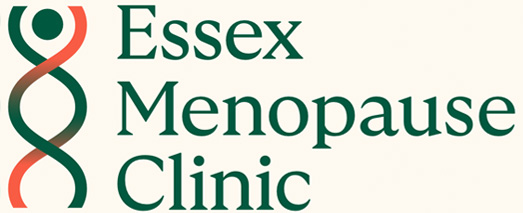Safety and HRT
Safety and HRT
Recent media coverage has brought increased attention to menopause treatment and Hormone Replacement Therapy (HRT).
A BBC Panorama Programme has recently aired, and whilst I welcome greater awareness, I understand that some reports may have caused concern. This statement aims to provide clarity on my approach to menopause care, with a particular focus on HRT prescribing.
Expertise and Standards
My Experience and Skills
I have completed the FSRH Advance Certificate in Menopause Care and am recognised as a British Menopause Specialist.
I adhere to the latest guidelines from the British Menopause Society (BMS), which is our specialist authority for menopause care, and I attend their annual scientific conference and continually update my practice based on their evidence-based guidelines. I follow the recommendations laid out by NICE (National Institute of Clinical Excellence).
I also work in line with other clinicians who are BMS specialists, as part of a supportive network of clinicians who help to manage complex menopause cases.
My clinic conducts ongoing audits to ensure the highest quality of care.
How I prescribe HRT (Hormone Replacement Therapy)
The vast majority of my patients receive HRT prescriptions within the manufacturer’s licensed guidelines. This includes:
– Standard doses of oestrogen based on individual needs and symptoms
– Progestogen for endometrial protection in women with a uterus or if other conditions are present which indicate the need for progestogen prescribing e.g. endometriosis.
Off-License Prescribing
In some very occasional and exceptional cases, I may prescribe medications off-license. This could involve:
1. Higher oestrogen doses
2. Lower progesterone dose regimes
3. Off-license routes of administration
4. Testosterone when clinically indicated, following BMS guidelines.
These decisions are always:
– Based on clinical indications (e.g., surgical menopause, premature ovarian insufficiency, premenstrual syndrome, progesterone sensitivity).
– Made after a thorough discussion of risks and benefits with the patient.
– Accompanied by recommendations for additional monitoring (e.g., endometrial surveillance for reduced progesterone regimes).
– Communicated to the patient’s GP (with patient consent).
Safety prescribing is my priority
Regular reviews are mandatory for all my patients after starting or changing HRT regimes.
I discuss all treatment options, including lifestyle and dietary changes which can improve menopausal symptoms.
If appropriate I monitor hormone levels, particularly when prescribing testosterone or using non-standard regimes.
When prescribing oestrogen-based medications, I aim for the lowest effective dose to control symptoms.
In exceptional cases when higher doses may be needed for patients with premature ovarian insufficiency, surgical menopause, or poor absorption, each case is assessed individually, with risks and benefits thoroughly discussed and documented.
In terms of progesterone prescribing, patients on low progesterone regimes are clearly identified in our records and receive additional endometrial surveillance monitoring.
Any testosterone prescribed is in accordance with BMS guidelines and is typically only considered after establishing effective oestrogen replacement.
I regularly monitor blood levels of testosterone in my patients on replacement therapy and I only prescribe if the patient is monitored and regularly reviewed.
For patients with complex medical conditions, there is appropriate communication and discussion with other clinicians involved in the patient’s care (such as gynaecologists and oncologists).
Patients who have been discharged from a menopause clinic, and who are now under the care of their GPs, should have a review with their GP, at least annually. If they have any concerns, I encourage them to discuss this with their GP or arrange an appointment with me.
I believe in full transparency with my patients
All treatment options, including potential risks and benefits, are clearly explained.
I encourage patients to ask questions and voice any concerns.
With patient consent, I communicate all clinical decisions to their NHS GP.
I am committed to providing expert, personalised care for women. I stay abreast of the latest research and guidelines to ensure our patients receive the most appropriate and effective treatments. Whilst recent media coverage may have raised concerns, I want to reassure my patients that their safety and well-being are our highest priorities.
I encourage any patients with concerns to reach out to me directly. I’m here to listen, explain, and ensure you receive the best possible care during this significant life transition.
